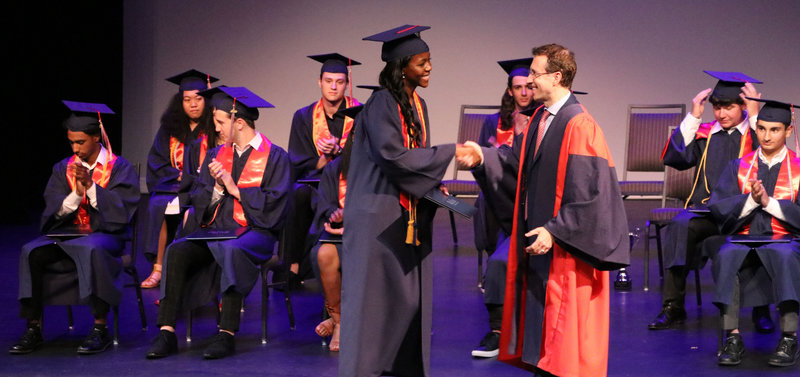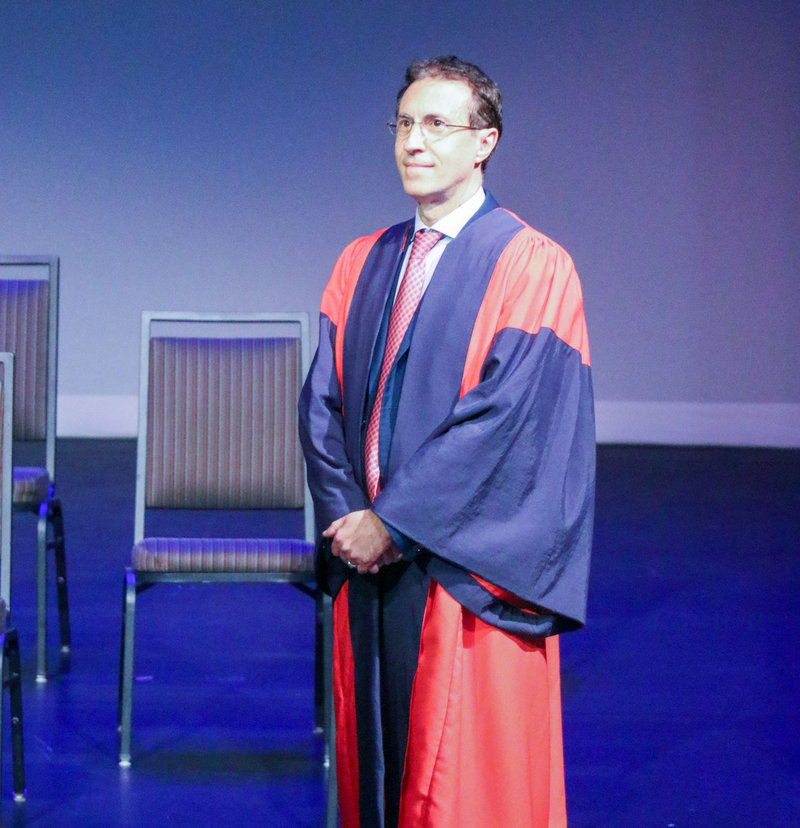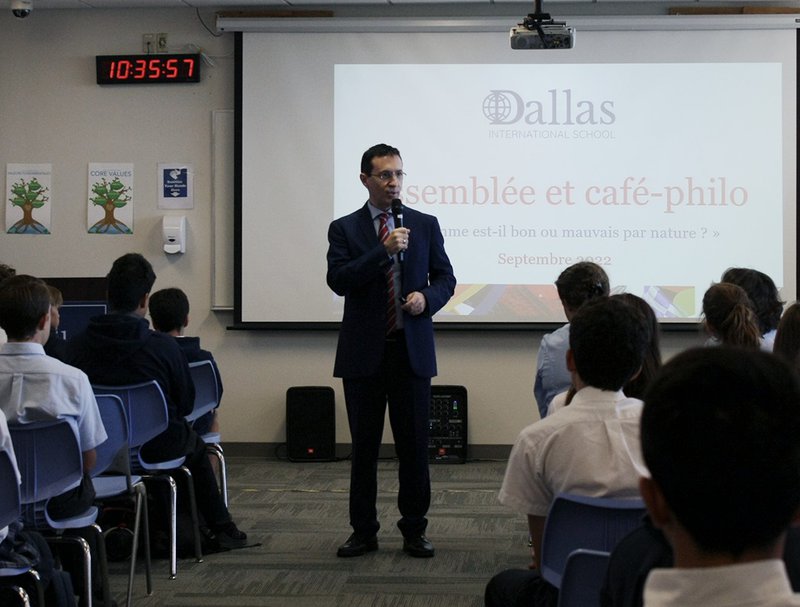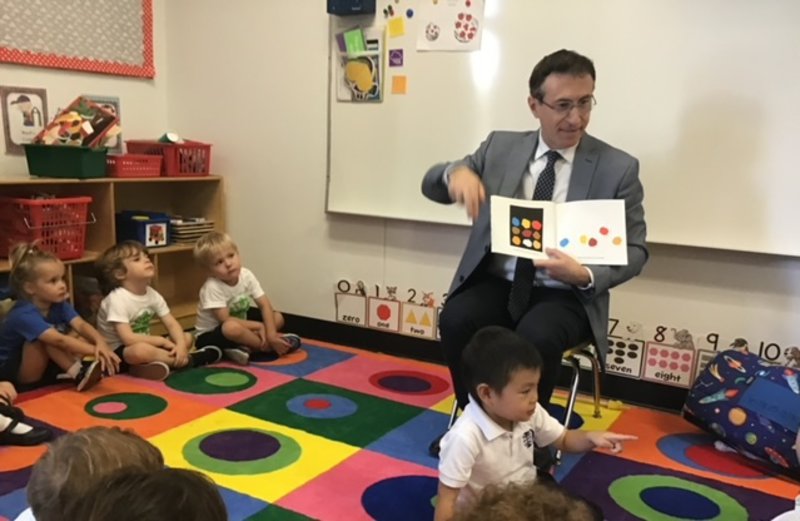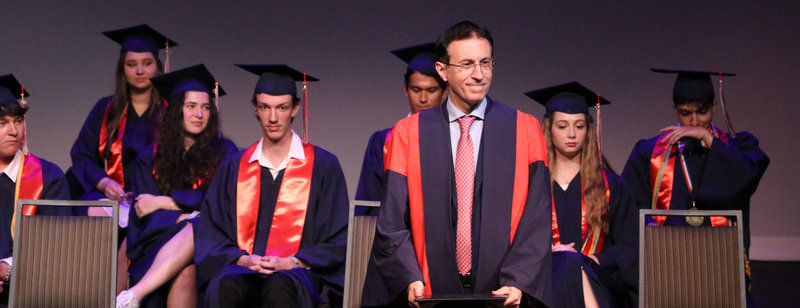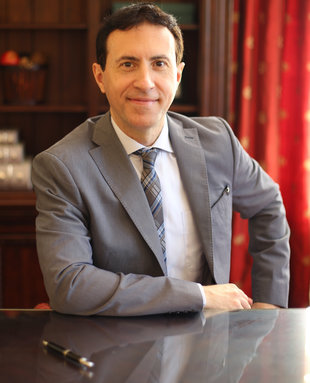News
Josep-Lluís González. marcela topor. mtopor@cataloniatoday.cat
is from Sabadell and has a long career in the fields of education, culture, management and international relations, in Catalonia, the UK, Canada and the United States. Currently leading the Dallas International School, in Texas, he has previously directed prestigious schools such as the Toronto French School, the British School of Barcelona, in Castelldefels, Eton College and St Paul’s School, in the UK
Land of art and cowboys
“Texans are welcoming people, attached to the land and traditions” “Is Fort Worth you can see people dressed as cowboys, cowgirls, which I find fantastic”
Why did you leave Catalonia?
I’ve spent 32 years of my life outside Catalonia, and I have left twice. After finishing my degree in English literature at Barcelona University, I left because I had a scholarship to do a master’s degree at the university of Warwick, then at Oxford to do my doctorate degree, my DPhil. I left, on the one hand because I wanted to pursue my studies and also because I had this urge to discover other countries, and other ways of life, to travel, at that time when the world was less globalised. It was back in 1988, there was no internet, obviously, and travel was more difficult and expensive – in those days, London was 24 hours away from Barcelona. I did many things, including teaching at Eton for about 14 years (1997-2011), which was an amazing experience. I went back to Catalonia in 2011, and the second time I left, in 2015, I went to Canada, from the British School of Barcelona to TFS, the Toronto French School – from a British international school to a French international school, to develop professionally, to learn about other systems, and countries. I always say that from each school I learnt from the people, their identity, and I’m always impressed by the wonderful students I’ve come across.
What made you choose Dallas?
I’ve always had an interest in international education. I started in British schools, and I became interested in an alternative view of international education, which is the francophone way of doing things, which is different from the British and American systems. I wanted to explore that, which is why I worked in Canada, for six years, and then I got the opportunity to continue in a school from the same international network. I had travelled extensively to the east and west coasts but never lived in the US and it was interesting for me to discover Texas.
What is the best thing about living there?
I don’t have a family, but raising a family in Dallas is very special: there is excellent housing, and most people have gardens, it’s a city where it is easy to raise a family from that point of view. Texans are very welcoming people, they are very attached to the land, to their own traditions, they are the kind of people who will invite you to Thanksgiving dinner, to a barbecue, to do a lot of things together, when in big cities like New York or Los Angeles, you’re not necessarily going to find the same human warmth.
What would you most like to change?
I would like Dallas to have more public transport, for environmental reasons, obviously – we go by car everywhere. Here it’s easy, as there aren’t as many traffic jams as in other cities around the world. I also wish the American society was less divided, socially and politically speaking.
What is it that you miss most from home?
A certain lifestyle. I like European cities that are of a human size, where there’s a good mixture of modernity but there is also a lifestyle that you could say is more conducive to human balance. I like that in my home town, in Sabadell, you can walk everywhere, I can leave my house on foot and go and get my bread, go to the market... I miss that lifestyle where cities are of a human dimension, where human relations are still important, where you can go to the market and if you don’t know what to cook for dinner, your fishmonger will give you a recipe. That, I miss. North American society is very often highly urban and has lost a little bit of that social fabric that still exists in other cities around the world, most particularly in Europe but also in Latin America.
What do you take with you as a present when you go back to Catalonia?
When I was in Canada, it was maple syrup, and from here, little gifts to do with cowboy culture. This is a cowboy country – right near Dallas is Fort Worth, where you can still see people dressed as cowboys, cowgirls, that’s part of the culture, which I find fantastic. In the old part of Fort Worth, called Cowtown, every single day you can see longhorn cows parades in the stockyards.
What characterises your neighbourhood?
I’m not downtown, but not far from it, either. My area is close to the shops, and at the same time very residential, with beautiful new England houses, with nice porches and gardens. I can get on the bike and ride round, and get a bit of exercise. And the weather here is generally fantastic, there’s lot of sunshine, even in winter we can get relatively warm temperatures, it is very mild and very pleasant.
What is the best experience you had in Dallas?
The best is always the human experience, being surrounded by wonderful educators and students, people with a big human heart, students who really want to learn, who are academically ambitious, who want to make a positive difference in the world, and to the progress of humanity, who want to be global citizens. Also getting to know the local culture, which goes from cowboy culture and rodeos to fantastic art museums like the Dallas Museum of Art and the Kimbell Art Museum in Fort Worth, which are extremely rich in terms of the history of western art.
Do you plan to go back to Catalonia?
At the very latest, I will take my retirement in Catalonia. It is my plan to return within the next five to seven years, most definitely.
CATALANS ABROAD DALLAS (uNITED sTATES)

